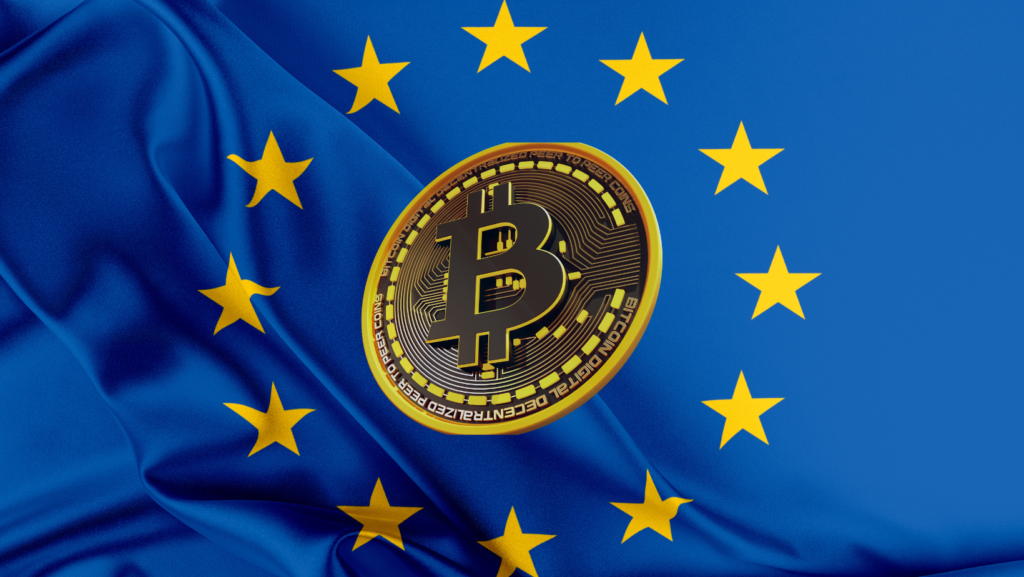What Europe’s new spot Bitcoin ETF means for global markets

The crypto world is abuzz with Europe’s groundbreaking introduction of its first spot Bitcoin exchange-traded fund from Jacobi Asset Management, listed on Euronext Amsterdam — a listing that took two years after initial approval in 2021. This development marks a pivotal moment in the continent’s financial history and sets a precedent for other jurisdictions to potentially follow.
In the wake of this, there’s a palpable sense of anticipation. As digital assets gain traction, Europe’s decision underscores a commitment to innovation while addressing the complexities of the crypto market — the harbinger of a global shift towards a more inclusive and diversified financial ecosystem. With Hong Kong’s renewed ambition to be a major crypto hub and debuting retail crypto trading via licensed exchanges, it may not be long before we see the first spot Bitcoin ETF in Asia, too.
Europe paving the digital highway
Over the past decade, Europe has witnessed a steady growth and acceptance of digital assets. From the grassroots level of early enthusiasts trading cryptocurrencies to towering financial institutions exploring and adopting blockchain solutions, the continent has championed digital asset innovation.
This commitment to progress has set the stage for the current developments. Pivotal regulatory discussions, such as the European Union’s deliberations on the Markets in Crypto Assets (MiCA) regulation, have sculpted the digital financial landscape in Europe. These regulatory strides, buoyed by interest from institutional investors, have culminated in the introduction of the spot Bitcoin ETF, marking a significant leap forward.
Inside the spot Bitcoin ETF
A spot Bitcoin ETF offers a more appealing route for institutional and professional investors to invest in Bitcoin through a more familiar product structure. The ETF offers a structured and regulated way for investors to tap into Bitcoin’s potential. Unlike holding Bitcoin directly, which comes with security and storage concerns, the ETF provides a more traditional investment vehicle.
Jacobi’s ETF is regulated by the Guernsey Financial Services Commission and trades under the ticker BCOIN. What sets Jacobi’s Spot Bitcoin ETF apart is its stringent regulatory compliance, ensuring investor protection. By bridging the gap between traditional finance and the digital asset world, it showcases the transformative potential of such instruments in the evolving financial landscape.
As Europe leads, US remains reluctant
Europe’s introduction of a spot Bitcoin ETF sets it apart as a pioneer, especially when contrasted with the United States, which, despite its dominant crypto market presence, has been reticent in approving a spot Bitcoin ETF.
This strategic divergence could recalibrate global financial market dynamics, potentially positioning Europe as a magnet for digital asset investments. The more conservative stance in the U.S., likely rooted in regulatory apprehensions and market fluctuations, accentuates the differences in regulatory visions between the two jurisdictions. It also highlights the challenges and opportunities that digital assets present, emphasizing the need for a nuanced and informed regulatory perspective.
Ripple effects beyond Bitcoin
The spot Bitcoin ETF’s introduction might act as a catalyst — it’s akin to opening a door, inviting other digital assets to step into the spotlight. This pioneering step could spur the development of ETFs for other major cryptocurrencies or even lead to the creation of multi-asset cryptocurrency ETFs.
The ETF’s debut could also influence investor strategies, potentially driving more institutional investment into the digital asset space.
Old giants learning new dance
Traditional financial entities, spanning banks to asset managers, now grapple with the undeniable reality of digital assets becoming mainstream. The once clear lines between traditional finance and the world of cryptocurrencies are blurring. As digital assets gain legitimacy, especially with regulatory clarity in certain jurisdictions, the financial sector is undergoing a transformative shift.
We’re also witnessing an uptick in traditional banks establishing relationships with crypto companies, propelled, in part, by the U.S. bank closures earlier this year. In March, Coinbase partnered with Standard Chartered in Singapore for free fund transfers. Following Silicon Valley Bank’s failure, Circle announced Cross River as its new banking partner. In Switzerland, Arab Bank reported an increase in U.S. firms from the crypto space seeking banking services after Silvergate’s collapse.
The broader financial sector might witness seismic shifts in asset allocation strategies, advisory services, and financial product portfolios in response to this digital renaissance. The dynamic landscape painted above highlights the adaptability of the financial world.
Grayscale’s effect on regulatory perspectives
Grayscale’s recent court victory over the U.S. Securities and Exchange Commission is a testament to the changing tides. The federal appeals court’s decision to side with Grayscale, challenging the SEC’s rejection of their spot Bitcoin ETF, is significant. According to JPMorgan analyst Nikolaos Panigirtzoglou in a recent note: “It looks more likely that the SEC would be forced to approve the Spot Bitcoin ETF applications that are still pending from several asset managers, including that from Grayscale.” This not only underscores the growing acceptance of digital assets but also highlights the need for regulatory bodies to adapt to the evolving financial landscape.
Grayscale’s landmark victory against the SEC has set a precedent that could catalyze the approval of multiple spot Bitcoin ETFs. This development could inject more competition into the market, potentially lowering fees for investors.
Balancing innovation and regulation
The introduction of an avant-garde financial instrument like a spot Bitcoin ETF is not devoid of pitfalls. From market volatility to regulatory uncertainties, there are challenges to consider. Vigilant regulatory oversight becomes paramount to anchor market stability and shield investors from potential market manipulations or fraud. As with any investment, education is key. Ensuring that investors are well-informed can prevent speculative bubbles and uninformed investment decisions.
Europe’s Bitcoin ETF introduction signals a new era in finance, where digital assets and traditional finance come together. As Europe treads this new path, the balance between innovation and regulation will be pivotal to ensure a stable and prosperous financial future.
The journey has just begun. Collaborative efforts, informed regulations and continuous education will be crucial as Europe navigates the evolving digital asset space. And Grayscale’s win across the water is another positive sign of progress.
Source link
#Europes #spot #Bitcoin #ETF #means #global #markets





